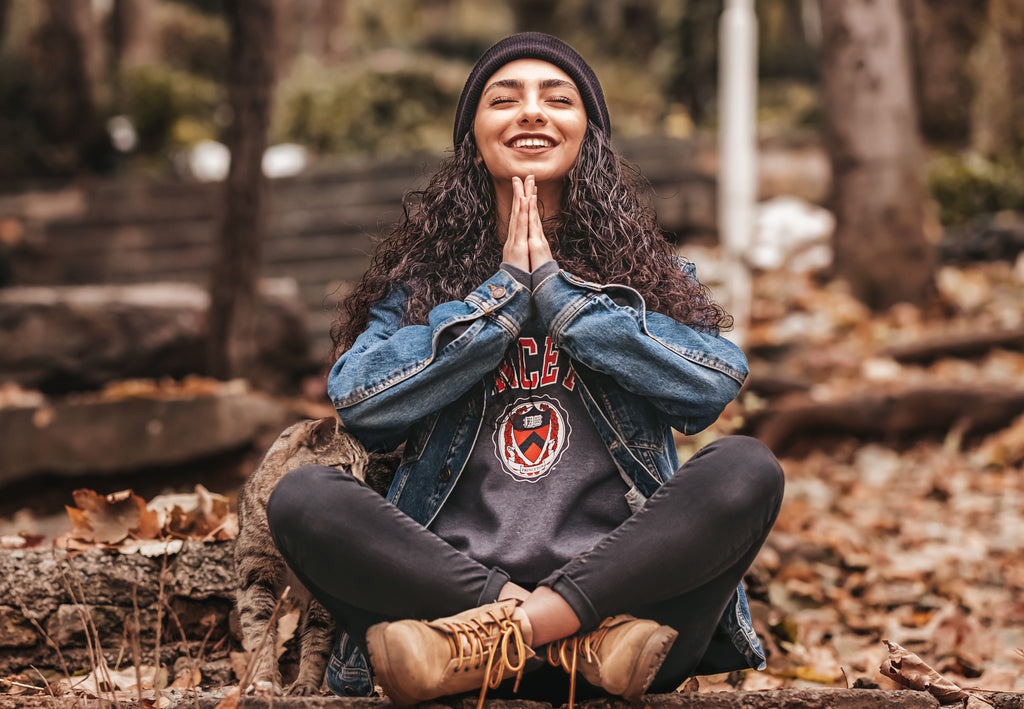The Activist’s Toolkit: 5 Ways to Bring Mindfulness and Meditation into Your Fight for Justice
As activists, we have an innate desire to advocate for the greater good. We feel compelled to dedicate our energy to causes we believe in deeply and along with that choice comes some necessary sacrifices. Though we may be passionate about our communities, the wellbeing and treatment of animals, and the overall health of the planet, we have a tendency to keep on giving past the point of burnout. As we look to pioneer a more compassionate future for the whole, we need to remember to give ourselves the same attention.
Being so accustomed to dedicating our lives to a common cause can create feelings of guilt around self- care and self-preservation. But, activist burnout out is real and usually comes along with a slew of negative mental health symptoms: heightened anxiety, depression, high blood pressure, and weakened immune systems. If we force ourselves to press on beyond this point, we face being unable to show up when it really counts. It may sound cliché, but if we don’t help ourselves, how can we expect to help others?
Studies are in favor of activists taking time for themselves to restore and rejuvenate their minds, bodies, and spirits. By practicing mindfulness and meditation, we can create a more balanced life that helps to propel us in our work and keep us grounded with meaningful moments of rest. Here are 5 effective mindful and meditative techniques to keep in your social justice toolkit:

We are so accustomed to jumping out of bed the moment we hear that blaring alarm sound; we live in a culture of ‘go-go-go!’ but short morning meditations remind us that it is okay to go ‘slow-slow-slow.’
Our time is precious, especially when we tend to carry the weight of the world on our shoulders, but even investing 5 minutes into a morning meditation can change the trajectory of your entire day. Consciously easing into the day ahead has been proven to improve your mood, reduce stress, and support a healthy metabolism.
You may consider a guided meditation through the slew of phone apps available to you, or you might opt for a silent meditation where you focus on your breathing and remaining present in your body. You might practice in bed or choose to sit on your meditation pillow. The simplicity and versatility of this technique is part of what makes it so powerful. You will see the benefits any way you choose to incorporate this waking meditation into your daily routine.
Nothing has the power to shift your mood quite as drastically as choosing to be grateful for what is already present in your life. It opens our hearts to take in the blessings that are around us and has the power to shift our attention to the positivity in our lives. For activists, we tend to bog ourselves down with work yet to be done, but gratitude encourages us to focus on the progress we have already made. This simple technique can embolden us to continue onward without feeling weighed down by all that is left for us to do.
Keeping a gratitude journal and committing to add entries into each day will prove most effective; just like any muscle, gratitude is something we need to consistently work at to get stronger and enjoy its benefits.
Because we care so deeply about the goings-on in the world, as activists, we are more prone to encountering regular symptoms of anxiety and panic disorders. In especially charged moments, we may experience ruminating thoughts, excessive heart activity, and even panic attacks. It is critically important to have a tool in our back pocket for addressing and working through these high-stress moments.
Square breathing (or box breathing) is a simple and fast way to slow your heart rate, clear your mind, return to your normal breathing pattern, and get present in your body. To complete this exercise, you will breathe in for 4 seconds, hold for 4 seconds, release that breath for 4 seconds, hold again for another 4 seconds, and repeat. This technique has been proven to reduce the presence of Cortisol (the stress hormone) in the body and regulates hyperventilation and lung activity.

If you have ever found yourself on a walk after a heated or particularly charged moment in your life, you will understand how and walking meditations can prove extremely beneficial for the regular practitioner. Walking meditations differ slightly than your run-of-the-mill walks and are designed to take your thoughts away from whatever is bothering you and return your mind to a state of calm. Studies have consistently shown that mindful walks help us gain a greater sense of control over our thoughts and actions and allow for enough space and time to make constructive decisions in the face of negativity.
There are many ways to participate in a walking meditation but experts recommend counting breaths in between steps to start or counting your steps up to 10 (1, 2, 3...) and then reversing the count (10, 9, 8...). The idea here is to connect to all sensations involved in the walking movement, helping you to return to your body and ground in the present moment. Thich Nhat Hanh is a major supporter of walking meditations and advocates for its simple effectiveness: “When you walk, arrive with every step. That is walking meditation. There’s nothing else to it.”
Body scan meditations equip its practitioners with the tools to mindfully process the tension both in their body and in their minds. Engaging in this practice regularly can help promote over wellness, induce restful sleep, and protect your body from the harmful effects of stress.
As pioneers of transformative change and advocates for marginalized or silenced voices, it is crucial we keep ourselves in tip-top mental shape. We feel the pressure of our causes and believe in bettering the planet for all but must remember we cannot give what we ourselves do not have. Running on empty isn’t an option for us; we must absolutely take care of ourselves before we can continue to look outward. It is our hope that you take these meditative and mindful techniques with you in the fight, so you can prepare yourself for the highs and lows of an activist lifestyle.










Leave a comment
Please note, comments need to be approved before they are published.